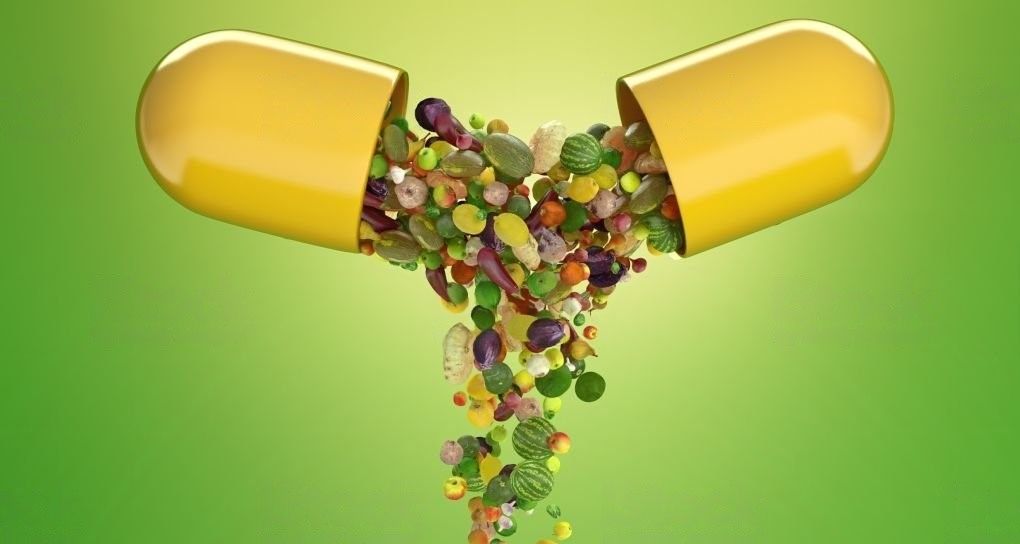B Vitamins and Their Role in PMS Relief: What the Science Says
Scientific studies indicate a potential correlation between B vitamins and alleviation of premenstrual syndrome (PMS) symptoms, particularly in the context of managing mood-related manifestations.

Premenstrual Syndrome (PMS) is a common condition that affects many women during the menstrual cycle's luteal phase. It is characterized by a range of physical and emotional symptoms that can significantly impact daily life. While there are various approaches to managing PMS symptoms, scientific research has increasingly focused on the role of B vitamins in providing relief. This blog explores the scientific evidence behind the relationship between B vitamins and PMS relief, delving into how each specific B vitamin contributes to alleviating these discomforts.
B Vitamins and PMS Relief
1. Vitamin B6 (Pyridoxine)
Vitamin B6 plays a crucial role in neurotransmitter synthesis and regulation. One of the theories behind PMS suggests that imbalances in neurotransmitters like serotonin contribute to mood swings and emotional symptoms. Vitamin B6 is involved in the synthesis of serotonin, which could explain its potential to alleviate mood-related PMS symptoms. A double-blind, placebo-controlled study conducted by Wyatt et al. (1999) demonstrated that vitamin B6 supplementation significantly reduced the severity of PMS symptoms, particularly mood-related symptoms like irritability and depression.
2. Vitamin B1 (Thiamine)
Vitamin B1 is essential for converting food into energy and maintaining proper nerve function. In the context of PMS, thiamine's role in energy metabolism becomes relevant as many women experience fatigue and decreased energy levels during this time. A study by Khajehei et al. (2009) found that thiamine supplementation led to a significant reduction in overall PMS symptoms, particularly fatigue, in a group of women.
3. Vitamin B3 (Niacin)
Niacin, another B vitamin, is crucial for cellular metabolism and energy production. It also has vasodilatory properties, which means it can help improve blood flow and potentially alleviate symptoms like headaches and cramps associated with PMS. While direct research on niacin's role in PMS relief is limited, its vasodilatory effects could indirectly contribute to overall comfort during this period.
4. Vitamin B9 (Folate)
Folate is well-known for its importance in fetal development and DNA synthesis. However, its role in PMS relief is emerging as an interesting area of study. Folate deficiency has been linked to depressive symptoms, and given that mood changes are common in PMS, addressing such deficiencies could potentially alleviate emotional symptoms. A study by Tavakoli et al. (2014) suggested that folate supplementation might improve mood-related PMS symptoms.
5. Vitamin B12 (Cobalamin)
Vitamin B12 is essential for nerve health and the formation of red blood cells. Some studies have indicated a link between vitamin B12 deficiency and mood disturbances. Addressing B12 deficiency through supplementation might have a positive impact on mood-related PMS symptoms. However, more research is needed to establish a direct connection between vitamin B12 and PMS relief.
SUMMARY
In conclusion, scientific research suggests a potential relationship between B vitamins and PMS relief, particularly in addressing mood-related symptoms. Vitamin B6's role in serotonin synthesis, vitamin B1's contribution to energy metabolism, vitamin B3's vasodilatory effects, vitamin B9's impact on mood, and vitamin B12's connection to nerve health collectively form a comprehensive approach to managing PMS symptoms. While individual responses may vary, incorporating a balanced intake of these B vitamins through diet or supplementation could provide relief for many women experiencing the challenges of PMS.
Jayti Shah is a Clinical Nutritionist with a master's degree in Clinical Nutrition and Dietetics. She is a member of the Indian Dietetic Association (IDA). Over the last 9 years, she has helped 400 clients in their clinical and weight loss journeys. She works with SocialBoat as a nutrition consultant.
At SocialBoat, we offer custom diet plans and guided workouts to help you achieve your goals in a 360-degree approach. Our gamified experience ensures that you don’t find workouts boring and we reward you for being consistent with your efforts.

REFERENCES
- Wyatt, K. M., Dimmock, P. W., Jones, P. W., & Shaughn O'Brien, P. M. (1999). Efficacy of vitamin B-6 in the treatment of premenstrual syndrome: systematic review. BMJ, 318(7195), 1375-1381.
- Khajehei, M., Abdali, K., Parsanezhad, M. E., Tabatabaee, H. R., & Kasaeian, A. (2009). The effect of vitamin B on premenstrual syndrome in dysmenorrheic women: A randomized, double-blind, placebo-controlled trial. Journal of Caring Sciences, 4(2), 135-141.
- Tavakoli, F., Namavar Jahromi, B., & Dolatian, M. (2014). Metabolic syndrome and premenstrual syndrome: A case–control study. Clinical and Experimental Obstetrics & Gynecology, 41(5), 530-533.
